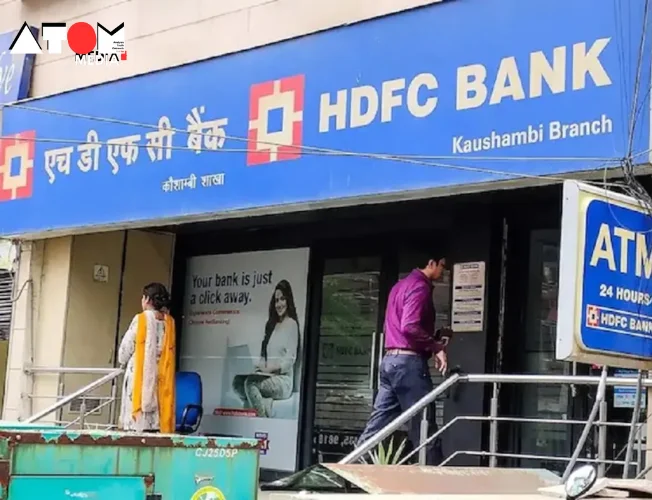In a significant development in the Indian financial sector, HDFC Bank has turned down Mitsubishi UFJ Financial Group’s (MUFG) proposed $2 billion investment for a 20% stake in its non-banking subsidiary, HDB Financial Services. This decision marks a pivotal moment in the largest foreign direct investment (FDI) proposal within India’s financial services sector and could reshape strategic alignments between major financial entities in Japan and India.
The Rejection of a Major Investment
On August 23, 2024, HDFC Bank’s board made the decision to reject MUFG’s substantial offer. Instead of moving forward with the sale, HDFC Bank has opted to pursue the public listing of HDB Financial Services to meet the Reserve Bank of India’s (RBI) regulatory requirements. This move comes as a blow to MUFG, the world’s second-largest bank holding company, which had been keen on acquiring a significant stake in the Indian NBFC.
The Strategic Implications
The proposed investment was seen as a critical step in strengthening the economic and strategic ties between Japan and India. MUFG’s investment would have not only provided capital but also facilitated HDB Financial Services’ valuation benchmark and strategic positioning in one of the world’s fastest-growing economies. For MUFG, which already holds a stake in Morgan Stanley, this investment was expected to further enhance its footprint in Asia amidst sluggish domestic growth.
The decision to reject the investment offer has disappointed Japanese officials and could affect diplomatic and economic relations. Japan had shown strong support for the deal, with the Japanese government conveying its backing to the Indian Prime Minister’s Office and key financial ministries. The rejection is anticipated to prompt Japan to express its discontent to the Indian government, potentially impacting future bilateral engagements.
Internal Dynamics at HDFC Bank
The decision reflects internal discord within HDFC Bank’s senior management. While some executives favored the MUFG investment for its potential to boost liquidity and strategic value, others preferred the IPO route as a means to comply with RBI regulations and achieve a fair valuation through the public market. The IPO plan is set to take place in late 2024 or early 2025, marking the first HDFC subsidiary to list after the recent merger with HDFC Ltd.
Before the merger, HDFC Asset Management Co and HDFC Life were the last subsidiaries to be listed. The board’s choice to proceed with the IPO over the MUFG investment indicates a preference for a more transparent valuation process and adherence to regulatory requirements.
Implications for HDB Financial Services and HDFC Bank
HDB Financial Services, which is categorized as an ‘upper-layer’ non-banking finance company (NBFC) by the RBI, had been preparing for its IPO, which is now poised to be a significant event in the Indian financial markets. The company offers a range of financial products including personal, business, home, and auto loans, serving 14.6 million customers through a network of 1,680 branches across India.
The IPO will help HDB Financial Services raise capital and set a valuation benchmark for the NBFC sector. It also reflects a strategic move by HDFC Bank to unlock value from its subsidiary and navigate the complexities arising from its recent merger.
The Financial and Strategic Landscape
The decision to reject MUFG’s offer comes at a time when HDFC Bank is grappling with post-merger integration issues and margin pressures. The merger with HDFC Ltd in July 2023 introduced a higher degree of debt, impacting the bank’s financial metrics. The rejection of MUFG’s investment could be seen as a move to stabilize the bank’s financial position and explore alternative avenues for growth.
MUFG’s interest in HDB Financial Services was part of its broader strategy to seek inorganic growth opportunities in Asia. The Japanese financial giant had previously invested in DMI Finance, another NBFC in India, and had recently increased its investment in the sector. The aborted deal with HDB Financial Services may prompt MUFG to reevaluate its investment strategies in the Indian market.
Looking Ahead: The Future of HDB Financial Services
As HDB Financial Services prepares for its IPO, it will face the dual challenge of navigating regulatory requirements and achieving a successful market debut. The company’s recent performance shows promise, with a portfolio expansion at a compound annual growth rate (CAGR) of 8.4% over the past five years. The firm’s assets under management increased to Rs 83,989 crore by December 31, 2023, supported by higher disbursements and improved net interest margins.
The upcoming IPO will be a key event for HDB Financial Services, setting the stage for future growth and strategic positioning in the financial services sector. It will also provide an opportunity for investors to gauge the company’s value and performance in the public market.
Conclusion
HDFC Bank’s decision to reject MUFG’s $2 billion offer for a stake in HDB Financial Services represents a significant shift in the Indian financial landscape. While the move has disappointed Japanese stakeholders and could impact diplomatic relations, it underscores HDFC Bank’s commitment to regulatory compliance and strategic growth through an IPO.
Read more: Marketing News, Advertising News, PR and Finance News, Digital News





